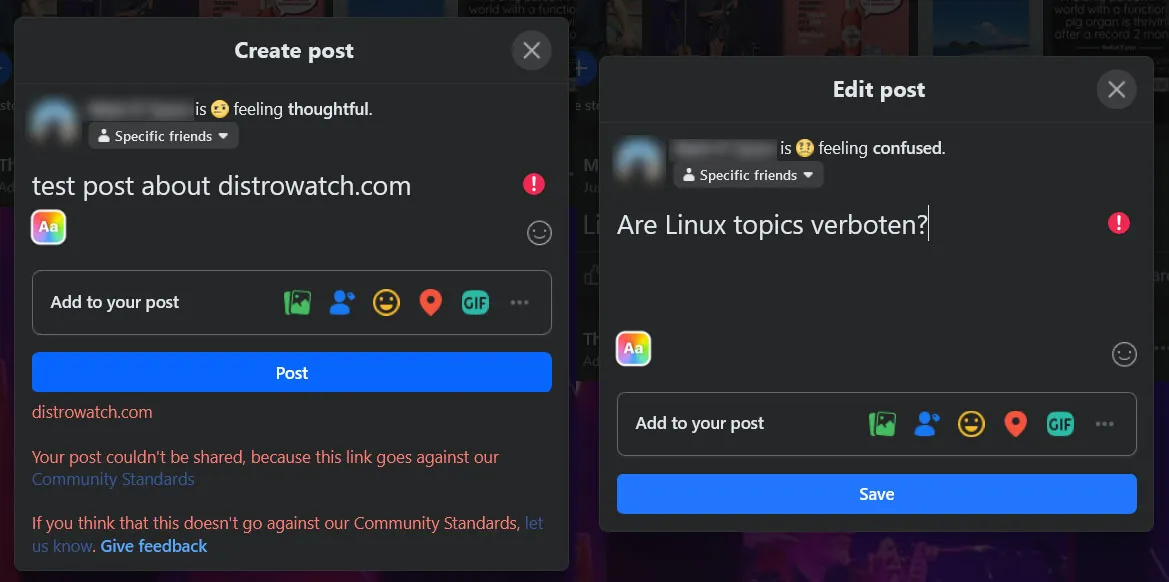In a significant shift in content moderation policies, Meta, the parent company of Facebook, Instagram, and other social media platforms, has announced major changes to its approach to managing online discourse. This move, spearheaded by CEO Mark Zuckerberg, marks a departure from the company’s previous reliance on third-party fact-checkers and signals a new era of user-driven content moderation.
 Facebook’s 2012 Controversy: Ethical Dilemmas in Psychological Experimentation
Facebook’s 2012 Controversy: Ethical Dilemmas in Psychological Experimentation
The End of Third-Party Fact-Checking
On January 7, 2025, Meta announced the discontinuation of its third-party fact-checking program[2]. This program, implemented in 2016 as a response to concerns about misinformation, particularly following the 2016 U.S. presidential election, had been a cornerstone of Meta’s content moderation strategy. Zuckerberg cited concerns over political bias and censorship as primary reasons for this change[2][3].
The company plans to replace the fact-checking system with a “Community Notes” feature, similar to the one used by X (formerly Twitter)[3]. This approach empowers users to add context to posts they believe may be misleading or false. The effectiveness of this system, however, remains to be seen, with some experts expressing concerns about its ability to combat misinformation effectively[7].
A Comprehensive Guide to Facebook/Meta Privacy Settings
Simplification of Content Policies
Alongside the shift away from fact-checking, Meta is simplifying its content policies. The company is removing restrictions on topics such as immigration and gender identity, which Zuckerberg described as “out of touch with mainstream discourse”[2][4]. This change aims to align the platform’s policies more closely with broader societal discussions, allowing content that might previously have been restricted.
Social Media Stalking: How Much Does Facebook Really Know About You?
Automated Moderation and Human Review
Meta is also adjusting its approach to automated content moderation. The company will now focus its automated systems on what it terms “high severity violations,” such as terrorism, child exploitation, and fraud[10]. For less severe policy violations, Meta will rely more heavily on user reports and human review, with multiple reviewers required to agree before content is removed[19].
Meta Faces Multi-State Lawsuit Over Alleged Underage User Engagement
The Linux Controversy
Amidst these broader changes, a peculiar situation emerged involving Linux-related content on Facebook. Starting January 19, 2025, users reported that posts mentioning Linux or linking to Linux-related websites were being blocked or removed[1][6]. Facebook’s systems had apparently categorized Linux as “malware” and labeled associated groups as “cybersecurity threats”[1].
This situation highlighted the potential for overreach and errors in content moderation systems. After widespread criticism, Meta acknowledged this as an enforcement error, stating that “discussions of Linux are allowed”[12]. The incident underscores the challenges faced by large platforms in balancing security concerns with open discourse.
Specific Restrictions on Linux Posts
Facebook’s restrictions on Linux-related content have been both specific and far-reaching, targeting a wide array of posts, links, and discussions. These measures have drawn criticism for their apparent arbitrariness and lack of transparency.
- Posts mentioning Linux topics, including open-source operating systems, are flagged as violating Facebook’s Community Standards and labeled as potential “cybersecurity threats”123.- Links to prominent Linux-related websites, such as DistroWatch, have been systematically blocked. Users attempting to share these links receive warnings about misleading or harmful content142.- Accounts posting about Linux have faced severe consequences, including being locked or restricted. Some users reported that their posts were removed almost instantly after mentioning Linux12.- Appeals to reverse these restrictions have been largely unsuccessful. Facebook representatives confirmed that Linux topics would remain under the cybersecurity filter, citing no plans to revise this policy42.- Ironically, while banning discussions on Linux, Facebook continues to rely on Linux for its infrastructure and actively seeks Linux developers in its job postings25.
These restrictions have sparked widespread frustration among users and raised questions about Facebook’s moderation practices and their alignment with the platform’s reliance on open-source technologies.
Implications and Reactions
The changes announced by Meta have elicited mixed reactions. Supporters, including some conservative politicians, have hailed the move as a victory for free speech[2]. However, critics, including disinformation researchers and fact-checkers, express concern that these changes could lead to an increase in the spread of false or misleading information[2][7].
The shift also raises questions about the role of social media platforms in moderating content. By moving towards a more user-driven model, Meta is essentially delegating some of its responsibility for content moderation to its user base. This approach aligns with the company’s stated goal of promoting free expression but also potentially exposes users to a wider range of unverified information.
Meta’s Encryption Moves: Fortifying Privacy on Facebook Chat and WhatsApp
Global Implications
While these changes are significant for users in the United States, their global impact remains unclear. Meta still faces stricter regulations in other parts of the world, particularly in Europe, where laws around content moderation and user data protection are more stringent[16]. The company will need to navigate these varying regulatory landscapes as it implements its new policies.
Ken Paxton Secures $1.4 Billion Settlement with Meta Over Biometric Data Violations
🎧 Related Podcast Episode
Conclusion
Meta’s shift in content moderation policies represents a significant change in how one of the world’s largest social media platforms approaches the challenge of managing online discourse. As these changes are implemented, their impact on the spread of misinformation, user experience, and the broader landscape of online communication will be closely watched by users, regulators, and industry observers alike.
The move towards a more user-driven model of content moderation reflects broader debates about free speech, the role of technology companies in public discourse, and the challenges of managing information in the digital age. As Meta navigates this new approach, the outcomes will likely influence not only its own future but also the strategies of other social media platforms grappling with similar issues.
Citations: [1] https://www.tomshardware.com/software/linux/facebook-flags-linux-topics-as-cybersecurity-threats-posts-and-users-being-blocked [2] https://www.npr.org/2025/01/07/nx-s1-5251151/meta-fact-checking-mark-zuckerberg-trump [3] https://www.aljazeera.com/news/2025/1/10/meta-facebook-to-drop-fact-checkers-what-does-this-mean-for-social-media [4] https://www.nbcnews.com/tech/social-media/meta-ends-fact-checking-program-community-notes-x-rcna186468 [5] https://www.americamagazine.org/politics-society/2025/01/13/meta-factchecking-community-notes-249680 [6] https://www.neowin.net/news/facebook-apparently-banning-people-from-posting-linux-related-content-on-its-platform/ [7] https://www.cbsnews.com/news/what-is-community-notes-twitter-x-facebook-instagram/ [8] https://www.techradar.com/pro/facebook-is-blocking-linux-topics-and-channels-with-no-apparent-reason [9] https://www.eff.org/deeplinks/2025/01/metas-new-content-policy-will-harm-vulnerable-users-if-it-really-valued-free [10] https://techcrunch.com/2025/01/07/meta-drops-fact-checking-and-loosens-its-content-moderation-rules/ [11] https://about.fb.com/news/2025/01/meta-more-speech-fewer-mistakes/ [12] https://www.pcmag.com/news/facebook-accidentally-blocks-users-from-posting-about-linux [13] https://www.socialmediatoday.com/news/everything-to-know-about-meta-political-content-update/737123/ [14] https://transparency.meta.com/policies/community-standards/ [15] https://www.reddit.com/r/linux/comments/1ib3vaf/facebook_considers_linux_and_related_topics_a/ [16] https://www.washingtonpost.com/technology/2025/01/08/meta-facebook-fact-checking-europe-us/ [17] https://www.socialmediatoday.com/news/meta-community-notes-facebook-instagram/737229/ [18] https://truthout.org/articles/instagram-facebook-under-fire-for-censoring-posts-from-abortion-pill-providers/ [19] https://www.thefire.org/news/metas-content-moderation-changes-closely-align-fire-recommendations [20] https://www.bbc.com/news/articles/cly74mpy8klo [21] https://economictimes.indiatimes.com/tech/technology/copycat-elon-musk-x-users-react-to-meta-introducing-community-notes/articleshow/117052631.cms [22] https://www.youtube.com/watch?v=pRx8-Mx_jhc [23] https://www.npr.org/2025/01/07/nx-s1-5251151/meta-fact-checking-mark-zuckerberg-trump
